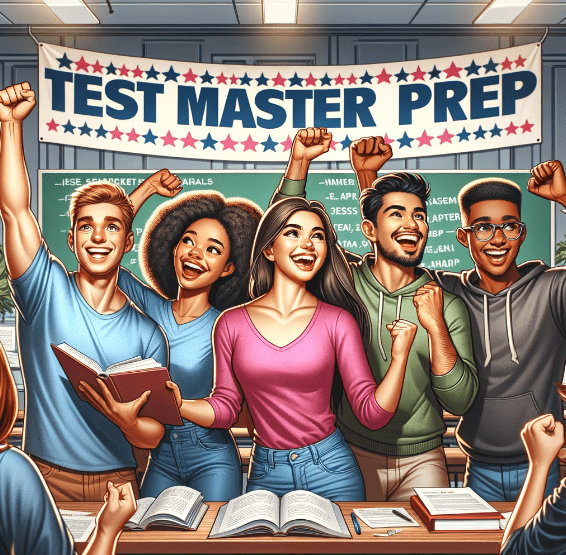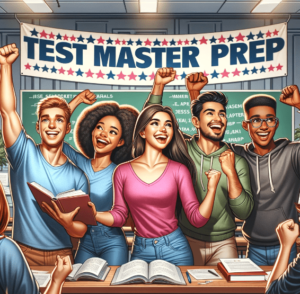Student Goal Setting 2025 is more than just a catchy phrase; it’s a roadmap for success. Think of it as your personal academic GPS, guiding you through the next year. 2025 presents a unique chance to reassess your academic journey, identify areas needing improvement, and set ambitious, yet achievable, goals. This isn’t about simply getting good grades; it’s about personal growth, building crucial life skills, and discovering your full potential. Student Goal Setting 2025 encourages a holistic approach, encompassing not only academics but also personal well-being and skill development.
Table of Contents
- Embarking on a Journey of Academic Excellence: Goal Setting for Students in 2025
- Strategies for Academic Success: Goal Setting and Time Management Techniques for 2025
- Enhancing Academic Performance: Skill Development and Resource Utilization in 2025
- Cultivating Resilience and Perseverance: Overcoming Challenges in 2025
Therefore, to truly thrive, you need a strategy. We’ll explore effective goal-setting techniques, time management strategies, and methods for enhancing your learning. Moreover, we’ll address the importance of resilience and how to overcome inevitable challenges. Remember, Student Goal Setting 2025 isn’t just about the destination; it’s about the journey, the skills you acquire, and the person you become along the way. Let’s embark on this transformative year together.
We also Published
Embarking on a Journey of Academic Excellence: Goal Setting for Students in 2025
The dawn of a new year, particularly one as significant as 2025, presents an unparalleled opportunity for introspection and the formulation of ambitious yet achievable goals. For students, this period serves as a pivotal juncture for evaluating past academic endeavors, identifying areas requiring improvement, and charting a course towards unparalleled success. The pursuit of academic excellence is not merely a solitary endeavor; it is a dynamic process that necessitates meticulous planning, consistent effort, and a steadfast commitment to self-improvement. The wisdom imparted by luminaries such as chess grandmaster D. Gukesh, who emphasizes the importance of setting new goals and refining training methodologies, underscores the transformative power of focused intention. Indeed, the very act of defining clear, measurable, achievable, relevant, and time-bound (SMART) goals significantly enhances the probability of realizing one’s aspirations. The year 2025 beckons, urging students to embrace the challenge of self-discovery and the pursuit of knowledge with renewed vigor and unwavering determination. This journey towards academic mastery requires not only intellectual prowess but also the cultivation of essential life skills, such as time management, effective study habits, and resilience in the face of adversity. The path to success is paved with deliberate choices and consistent action, leading students towards a future brimming with opportunities and accomplishments.
The pursuit of academic excellence in 2025 necessitates a comprehensive approach that transcends the mere accumulation of knowledge. It demands a holistic understanding of oneself, one’s strengths, and one’s weaknesses. Self-awareness is the cornerstone upon which successful goal setting is built. Students must honestly assess their academic performance, identify areas where they excel and where they struggle, and tailor their goals accordingly. This self-assessment should extend beyond grades and encompass study habits, time management skills, and overall academic engagement. By gaining a clear understanding of their current academic standing, students can establish realistic and attainable goals that align with their individual capabilities and aspirations. Furthermore, seeking guidance from mentors, teachers, or academic advisors can provide invaluable insights and support throughout this process. The journey towards academic excellence is not a solitary one; it is a collaborative effort that requires seeking counsel from experienced individuals who can offer valuable perspectives and guidance. The importance of seeking external support cannot be overstated, as it provides students with the necessary tools and resources to navigate the challenges and complexities of academic pursuits.
The year 2025 presents a unique opportunity for students to embark on a transformative journey towards academic excellence. By embracing a proactive and goal-oriented approach, students can unlock their full potential and achieve remarkable results. This journey necessitates a multifaceted strategy that encompasses not only academic pursuits but also personal growth and the development of essential life skills. The integration of various learning techniques, such as the Pomodoro Technique, spaced repetition, and mind mapping, can significantly enhance study efficiency and retention. Moreover, the cultivation of strong time management skills is crucial for balancing academic demands with extracurricular activities and personal time. Effective organization and prioritization are essential for managing multiple tasks and avoiding procrastination. The acquisition of new skills, whether through elective courses, online learning platforms, or independent study, can broaden one’s horizons and enhance one’s overall academic experience. The path to academic excellence is a continuous process of learning, adaptation, and self-improvement. Students must embrace challenges, learn from their mistakes, and remain committed to their goals throughout the year 2025 and beyond.
Strategies for Academic Success: Goal Setting and Time Management Techniques for 2025
The pursuit of academic excellence in 2025 necessitates a well-defined strategy that encompasses both short-term and long-term goals. Short-term goals, such as achieving a specific grade on an upcoming exam or completing a particular assignment, provide immediate targets that motivate students and build momentum. These smaller victories contribute to a sense of accomplishment and reinforce positive study habits. Long-term goals, such as graduating with honors or gaining admission to a prestigious university, provide a broader vision and direction. These aspirational goals serve as a compass, guiding students towards their ultimate academic objectives. The integration of both short-term and long-term goals creates a balanced approach that fosters both immediate motivation and sustained commitment. Regularly reviewing and adjusting these goals, based on progress and changing circumstances, is crucial for maintaining focus and adapting to unforeseen challenges. This dynamic approach ensures that students remain engaged and motivated throughout their academic journey. The year 2025 presents a unique opportunity for students to refine their goal-setting strategies and achieve remarkable academic success.
Effective time management is an indispensable skill for students aiming to achieve academic excellence in 2025. Procrastination, a common obstacle for many students, can be overcome through strategic planning and task prioritization. Breaking down large tasks into smaller, more manageable steps makes them less daunting and easier to approach. Setting realistic deadlines for each step helps maintain momentum and prevents overwhelming feelings of pressure. Utilizing various time management techniques, such as the Pomodoro Technique, which involves working in focused bursts with short breaks, can significantly improve concentration and productivity. Employing digital calendars, planners, or other organizational tools can help students visualize their schedules, track their progress, and stay organized. The integration of these strategies allows students to allocate sufficient time for studies, extracurricular activities, and personal pursuits, fostering a balanced and fulfilling academic experience. Time management is not merely about scheduling; it’s about optimizing one’s time to maximize productivity and minimize stress.
The year 2025 presents a unique opportunity for students to hone their time management skills and enhance their academic performance. By implementing effective strategies, students can overcome procrastination, improve their focus, and achieve a greater sense of control over their academic workload. This involves not only the strategic allocation of time but also the cultivation of self-discipline and the development of positive study habits. Regular breaks, sufficient sleep, and healthy lifestyle choices are essential for maintaining optimal cognitive function and preventing burnout. Furthermore, seeking support from teachers, mentors, or academic advisors can provide valuable guidance and assistance in developing effective time management strategies. By proactively addressing time management challenges, students can create a more balanced and productive academic experience, leading to improved academic outcomes and a greater sense of well-being. The year 2025 should be a year of growth and improvement, where students strive to master their time and achieve their academic aspirations.
Enhancing Academic Performance: Skill Development and Resource Utilization in 2025
In the pursuit of academic excellence in 2025, students must actively seek opportunities to enhance their skills and knowledge beyond the confines of their formal curriculum. This involves exploring various learning resources, such as online courses, workshops, and extracurricular activities, that complement their academic studies and broaden their horizons. The acquisition of new skills, such as proficiency in a foreign language, coding, or a musical instrument, not only enriches their personal development but also enhances their overall academic profile. These skills demonstrate initiative, adaptability, and a commitment to lifelong learning, qualities highly valued by universities and employers alike. Furthermore, participating in extracurricular activities, such as debate clubs, volunteer organizations, or sports teams, fosters teamwork, leadership skills, and a sense of community, contributing to a well-rounded academic experience. The year 2025 presents a unique opportunity for students to explore their interests, develop new skills, and expand their horizons beyond the traditional academic setting.
Effective utilization of available resources is crucial for academic success in 2025. Students should familiarize themselves with the resources offered by their educational institution, such as libraries, tutoring services, and academic advising centers. These resources provide invaluable support and guidance, helping students overcome academic challenges and achieve their goals. Furthermore, students should leverage online learning platforms and digital tools to supplement their studies and enhance their learning experience. Online courses, educational apps, and digital research databases offer a wealth of information and learning opportunities, expanding the scope of their academic pursuits. By actively seeking and utilizing these resources, students can maximize their learning potential and achieve greater academic success. The year 2025 presents an opportunity for students to harness the power of technology and available resources to enhance their learning experience and achieve their academic aspirations.
The year 2025 presents a unique opportunity for students to leverage available resources and develop new skills to enhance their academic performance. This involves not only utilizing the resources offered by their educational institutions but also exploring online learning platforms and digital tools. By actively seeking out and utilizing these resources, students can supplement their formal education, broaden their knowledge base, and develop valuable skills that enhance their academic profile. This proactive approach demonstrates initiative, resourcefulness, and a commitment to lifelong learning, qualities that are highly valued by universities and employers alike. Furthermore, engaging in extracurricular activities and seeking mentorship from teachers and academic advisors can provide valuable support and guidance, fostering a well-rounded and enriching academic experience. The year 2025 should be a year of exploration, skill development, and resource utilization, leading students towards greater academic success and personal growth.
Cultivating Resilience and Perseverance: Overcoming Challenges in 2025
The path to academic excellence is rarely linear; it is often punctuated by challenges and setbacks. Resilience, the ability to bounce back from adversity, is an essential trait for students navigating the complexities of academic life in 2025. Developing resilience involves cultivating a positive mindset, focusing on solutions rather than dwelling on problems, and learning from mistakes. Students should view challenges as opportunities for growth and learning, recognizing that setbacks are inevitable and that perseverance is key to overcoming them. By embracing a growth mindset, students can develop a sense of self-efficacy, believing in their ability to overcome obstacles and achieve their goals. This positive outlook fosters perseverance and enhances their ability to cope with academic stress and pressure. The year 2025 presents an opportunity for students to cultivate resilience and develop the mental fortitude necessary to navigate the challenges of academic life.
Developing effective coping mechanisms is crucial for students facing academic challenges in 2025. Stress management techniques, such as mindfulness, meditation, or regular exercise, can help students manage stress and anxiety. Seeking support from friends, family, teachers, or counselors can provide emotional support and guidance during difficult times. Building a strong support network is essential for maintaining mental well-being and fostering resilience. Students should not hesitate to reach out for help when needed, recognizing that seeking support is a sign of strength, not weakness. By developing effective coping mechanisms and building a strong support network, students can navigate academic challenges with greater ease and resilience. The year 2025 presents an opportunity for students to prioritize their mental well-being and develop the coping mechanisms necessary to thrive in the face of adversity.
The year 2025 presents a unique opportunity for students to cultivate resilience and develop the mental fortitude necessary to overcome academic challenges. This involves not only developing a positive mindset and effective coping mechanisms but also building a strong support network. Students should actively seek support from friends, family, teachers, and counselors, recognizing that seeking help is a sign of strength. By embracing challenges as opportunities for growth and learning, students can develop a sense of self-efficacy and persevere through difficult times. Resilience is not merely the ability to bounce back from adversity; it is the ability to learn from setbacks and emerge stronger. The year 2025 should be a year of growth, resilience, and perseverance, where students develop the mental strength to overcome challenges and achieve their academic aspirations. The cultivation of resilience is an ongoing process, requiring consistent effort and a commitment to self-improvement.
We also Published
RESOURCES
- Setting Goals for Success in 2025: Tips for Students and Parents
- 2025 New Year Goals Template: Free Goal Tracker – WeAreTeachers
- 2025 New Year Resolution Ideas for Students: Top 25 Must-Have Goals for …
- 6 SMART Goals Examples to Start 2025 Strong – Miro
- Setting S.M.A.R.T. Goals in 2025 – prehealth.natsci.msu.edu
- eBay Official Site – Planner Student
- 7 Most Popular Student Resolutions for 2025 – The Switch
- 150 Inspiring Goals to Set for 2025: Build Your Dream Life
- Planning for 2025: Free Template – personalplanner.com
- Setting Academic Goals for 2025: Preparing Your Child
- New Year, New Goals: Tips for Success as a Student in 2025
From our network :
- SQL CASE WHEN IN: Efficient Set Membership Checks in Conditional Statements
- Latest Trend in WordPress
- Meta’s $1 Million Donation to Trump’s Inaugural Fund: A Strategic Move or a PR Stumble?
- Calculating Car Distance Traveled with Uniform Acceleration in 10 Seconds
- Morphology and Embryology: A Detailed Study
- Vector Addition and Magnitude: A Step-by-Step Guide
- Indian Pharma Stocks: A Bubble Waiting to Burst?
- Russia’s military spending: A Sign of Continued Conflict in Ukraine
- Delving into the Trade Secret Misappropriation Case: TCS vs. CSC






